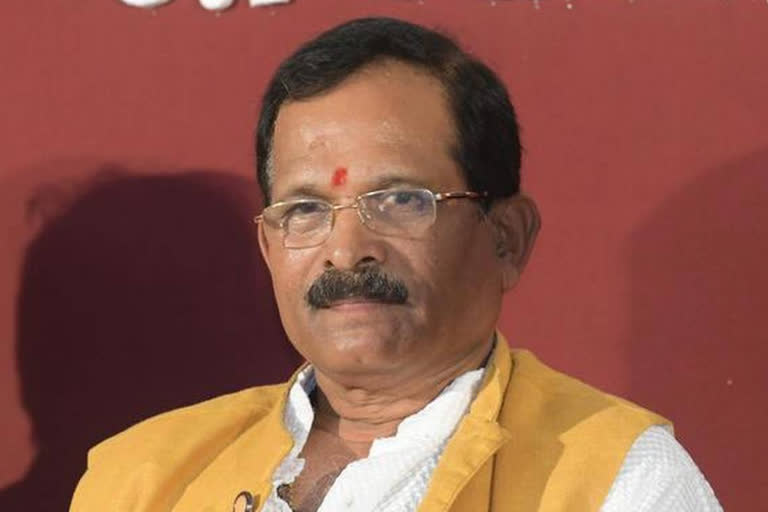New Delhi: The Defence Acquisition Procedure (DAP) 2020 would be focussing on simplifying the Defence acquisition procedure and institutionalising monitoring mechanism with concurrent actions using digital technologies and database for selection of best equipment in a transparent and competitive manner giving adequate opportunities to capable vendors, Mr Shripad Yesso Naik, Minister of State for Defence and Union Minister of State (Independent Charge) in the Ministry of AYUSH said in an ASSOCHAM webinar on Wednesday.
The Make in India initiative of the Government of India focuses on increasing participation of Indian Vendors MSMEs, and therefore “Make” procedure has been further refined including in DAP 2020 to make it more objective and time-bound with focus on Indian industry especially MSMEs, said, Naik.
The Defence Acquisition Procedure is based on the concept of “Womb to “Tomb” and has certain unique aspects such as supplier constraints, technological complexity, foreign suppliers, high cost, foreign exchange implications and geo-political ramifications, and therefore is not a standard open market commercial form of procurement, added Naik.
He added, “While maintaining highest standards of transparency, probity and public accountability, a balance between competing requirements such as expeditious procurement, high-quality standards and appropriate costs needs to be established. As a result, decision making pertaining to defence acquisition remains distinctive and complex”.
ALSO READ: Defence Minister lauds Army's handling of current security environment
DAP 2020 has been aligned with the vision of the Government of Atmanirbhar Bharat and empowering Indian domestic industry through Make in India initiative with the ultimate aim of turning India into a global manufacturing hub Atmanirbhar Bharat Abhiyan clarion call given by the Hon’ble Prime Minister, further accentuated by Policy Reforms in the Defence Sector as part of Phase IV ‘New Horizons of Growth’ are focussed towards enhancing self-reliance in defence production, indigenisation of spares, overhauling of Trial and Testing procedures based on realistic Services Qualitative Requirements and requisite monitoring by Project Management Unit (PMU) for time-bound procurement.
There is a need to institute enabling provisions for utilisation and consolidation of design, development and manufacturing infrastructure available in the country. A need has also been felt, for identifying strategic partners for promoting defence production in the private sector. The visionary FDI policy statement of enhancing FDI through automatic route from 49% to 74% in defence will enable in making ‘Manufacture in India’ a lucrative option for foreign equipment manufacturers, said Naik.
While the Defence Acquisition involves long gestation periods, whereas the needs of the Armed Forces being non-negotiable, flexibility in the procedure has been provisioned for, to ensure timely availability of important equipment. Thus, the DAP favours swift decision making, provides for suitable timelines and delegates powers to the appropriate authorities to ensure an efficient and effective implementation of the acquisition process, by all stakeholders concerned.
The Government of India has been tirelessly working towards ensuring seamless flow in acquisition and maintenance of defence platforms. The first Defence Procurement Procedure (DPP) was promulgated in the year 2002 and has since been revised periodically to provide impetus to the growing domestic industry and achieve enhanced self-reliance in defence manufacturing.
Others who also spoke during the conference were Mr Sanjay Jaju, IAS Joint Secretary (DIP) Ministry of Defence, Government of India, Colonel K. V. Kuber, Indian Army Veteran Director, Aerospace &Defence Ernst and Young LLP, Dr. S. C.Kansal, Co-Chairman ASSOCHAM National Council on Aerospace and Defence & Chairman, SMPP Pvt. Ltd., Shri Salil Gupte, Chairman ASSOCHAM National Council on Aerospace &Defence & President, Boeing India, Mr Neeraj Gupta Managing Director, MKU Ltd., Ms. Ashmita Sethi, President & Country Head, Pratt & Whitney, UTC India, Mr Sharadhi Chandra Babu P, CEO & Executive Director, AXISCADES Engineering and Deepak Sood, Secretary General ASSOCHAM.
ALSO READ: BJP sees dynasticism, corruption as weapons against opposition parties



